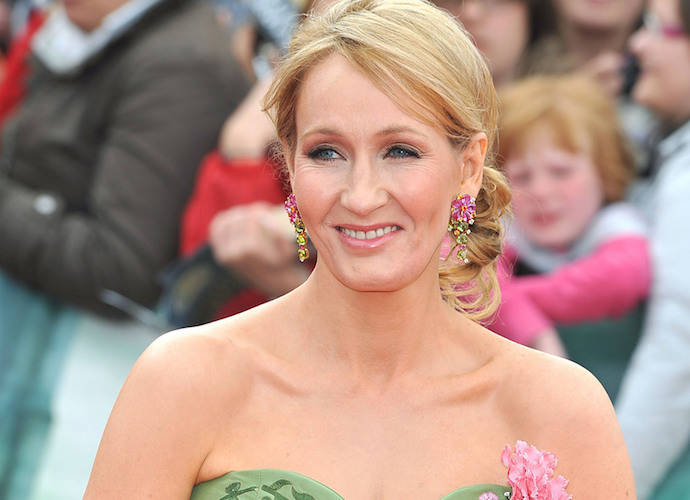J.K. Rowling Uses ‘Harry Potter’ To Explain Stance On Israeli-Palestinian Conflict
J.K. Rowling is once again using Twitter to weigh in on a major political issue and is using an unlikely Harry Potter allegory to support her position.
J.K. Rowling Uses ‘Harry Potter’ To Explain Stance On Israeli-Palestinian Conflict
Rowling was recently a co-signatory on a letter published in The Guardian which opposed the recent cultural boycott of Israel by a number of British artists, and many pro-Palestinian Harry Potter fans were quick to criticize the author for the move.
Rather than using the standard 140 characters to defend her position, however, Rowling used app Twitlonger to explain her reasoning in a more traditional, long-form response. In the first of two short essays Rowling writes that while she categorically disagrees with the majority of the current Israeli administration’s actions in office, she believes that a cultural boycott of Israel could only do more damage than good:
“I believe strongly that cultural dialogue and collaboration is more important than ever before and that cultural boycotts are divisive, discriminatory and counter-productive.”
When angry fans began to compare the current Isreal-Palestine conflict to the Harry Potter universe’s epic tale of good-versus-evil, Rowling was quick to use her beloved creation to support her stance. In her second essay, entitled Why Dumbledore Went To The Hilltop, Rowling describes a particular moment in the series when revered Hogwarts Headmaster Dumbledore is willing to communicate with then Death-Eater (bad guys for the uninitiated), Severus Snape, in the midst of the First Wizarding War between the forces of good and the evil Lord Voldemort.
“Dumbledore is an academic and he believes that certain channels of communication should always remain open,” she writes, opining that it was because Dumbledore was open to dialogue with the other side that Snape was able to turn away from Voldemort and towards a better path. “The course of my fictional war was forever changed when Snape chose to abandon the course on which he was set,” she writes, “and Dumbledore helped him do it.”
Signing off on her argument Rowling wrote:
“A cultural boycott places immovable barriers between artists and academics who want to talk to each other, understand each other and work side-by-side for peace.”
The piece has failed to stem all negative feedback for the famous author but many have taken to Twitter to voice their support.
RELATED ARTICLES
Get the most-revealing celebrity conversations with the uInterview podcast!


 Click here for the Best Celebrity Bikini Bodies Slideshow
Click here for the Best Celebrity Bikini Bodies Slideshow



Leave a comment